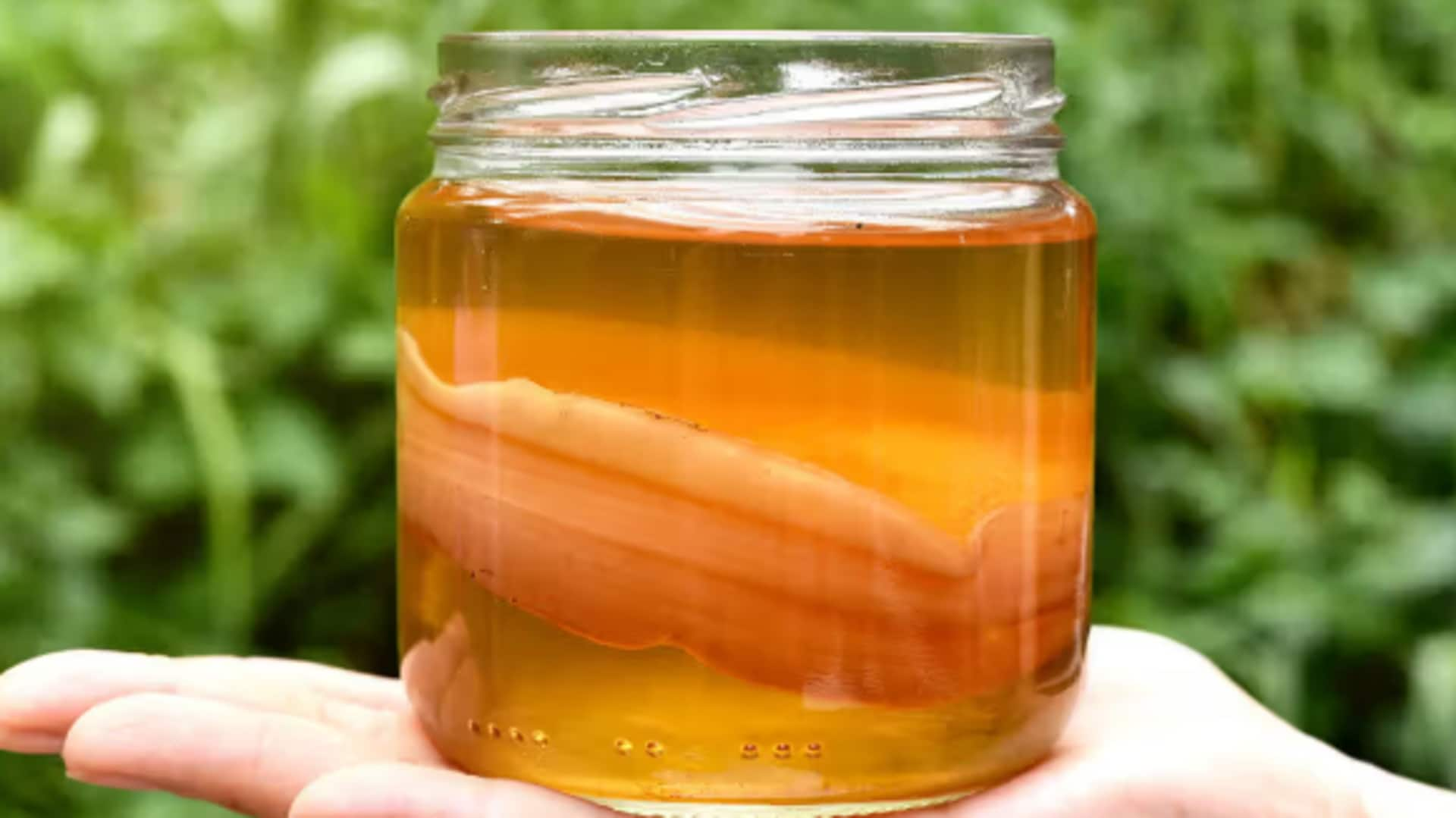
The illuminating path of kombucha's fermented finesse
What's the story
The world of kombucha, a fermented tea beverage, has exploded in recent years. Hailing from Northeast China as far back as 220 B.C., this fizzy delight is created by fermenting sweetened tea with a symbiotic culture of bacteria and yeast (SCOBY). From an ancient elixir to a modern-day health trend, kombucha's journey spans centuries of tradition, innovation, and scientific discovery.
Origins
A deep dive into kombucha's origins
The history of kombucha stretches back over 2,000 years to ancient China, where it was cherished for its perceived medicinal qualities. The moniker "kombucha" likely emerged in Japan during the 8th century, when a Korean physician named Kombu introduced the tea to Emperor Inyko. Over time, this fermented delight traveled across continents through trade routes, adapting to local flavors and ingredients.
Fermentation
The science behind the brew
Kombucha's fermentation process is a fascinating dance of microbiology. Introducing the SCOBY to a sweetened black or green tea sets the stage for microbial magic. Over seven to 14 days, the SCOBY devours the majority of the sugar, converting it into ethanol and acetic acid. This metamorphosis not only creates a unique tart flavor but also produces beneficial probiotics, adding to the health-promoting properties of kombucha.
Popularity
Global popularity surge
Over the past few years, kombucha has shed its status as an unknown health elixir and has exploded onto the global beverage scene. This meteoric rise is thanks to consumers' increasing interest in functional foods, which provide health benefits beyond simple nutrition. And, with market researchers predicting global sales to hit a staggering $5 billion by 2025, it's clear kombucha is no passing fad.
DIY brewing
Crafting your own kombucha at home
The real magic of kombucha is how easy (and fun!) it is to brew at home. Devotees love playing mad scientist, trying different teas and adding all sorts of flavorings like fruits and herbs during the second fermentation to create custom drinks. And while starting with a store-bought SCOBY or one from a fellow brewer is easiest for beginners, you can totally grow your own if you're adventurous!
Health insights
Navigating health claims and considerations
Although kombucha is often praised for its health benefits, including supporting digestion due to its probiotic content, experts advise consumers to approach these claims with caution. Research on kombucha is limited and ongoing, but individuals are advised to seek guidance from healthcare providers before consuming it, especially those with pre-existing conditions or pregnant women, due to the potential for trace amounts of alcohol.